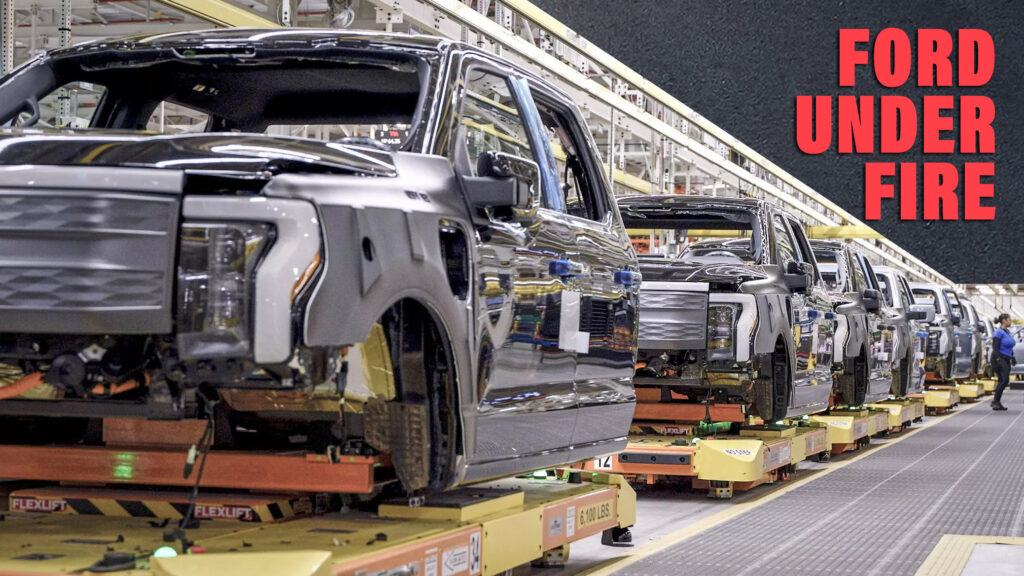BlueOval Battery Park Michigan is a key part of Ford’s plan to get ready for a large-scale shift to EVs and the $3.5 billion project is expected to create around 2,500 jobs for the local community. But not everyone living close the planned site is ecstatic about the venture.
A group of Michigan residents in Marshall, where Ford wants to open the battery park in 2026, are suing local government officials in an attempt to halt the project. The group calls itself “Committee for Marshall — Not the Megasite” and has filed a suit in Calhoun County Circuit Court claiming that the plant could pose an environmental risk to the Kalamazoo River and the agricultural lands around the city of Marshall.
The Committee had filed a petition demanding a vote on the decision to rezone 741 acres of farming land as industrial for Ford’s use, but Marshall officials rejected the petition, claiming it didn’t have enough signatures. Now the anti-battery site protestors have filed a suit in an attempt to overturn that earlier verdict. Marshall city officials, however, are sticking to their guns.
Related: US Government Loans Ford $9.2 Billion To Speed Up EV Development

“We know there is broad community support for this project, and we remain excited about the potential of the BlueOval Battery Park to create thousands of local jobs including jobs for young people, so they aren’t forced to leave our area to find opportunities,” Marshall City Manager Derek Perry said in an email statement to the Detroit Free Press.
Ford is investing $3.5 billion in the site, but Michigan is stumping up at least $1 billion in tax giveaways to Ford and road infrastructure projects to make the project happen. While local residents might be angry about the location of the site, and others are concerned that Ford will employ Chinese battery tech there, some prominent local figures are equally furious about what they see as a bad deal.
“The people of Michigan are getting a horrible return on investment,” State Rep. Ann Bollin said. “The state is spending $1.8 billion to create 2,500 mediocre-paying jobs. That’s $720,000 per job – and most of these jobs only pay $41,600.”
“I can’t understand why they’re so eager to cough up close to $2 billion for one company when our local roads are crumbling and state has billions of dollars in debt and other constitutional obligations,” Bollin added.




